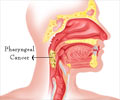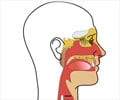Q: Which doctors treat my ailment?
A: The team will include an ENT specialist (Otorhinolaryngologist or in simple term, a Head and Neck surgeon) and an oncologist
Q: What are the risks and side effects of these treatments?
A: Treatment modalities like radiation and chemotherapy are not devoid of adverse effects. Radiation therapy may lead to extreme fatigue, skin rashes, hair loss, nausea, vomiting, diarrhoea, urinary discomfort and reduced immunity. The radiation oncologist usually takes care of these.
Chemotherapy drugs produce a wide spectrum of side effects like diarrhoea, hair loss, hearing loss, skin rashes, vomiting, tingling and numbness in fingers and toes. The patient has to have adequate nutrition, drink plenty of water.
Q: Are there chances that a cancer of the larynx can recur?
A: Yes. A recurrent case of cancer is treated using the previously mentioned standard treatment modalities.
Q: How soon can my cancer recur?
A: The cancer may come back in the first 2 to 3 years after treatment.
Q: How can you tell which is the stage of the cancer that I have?
A: Staging of cancer is done using the series of diagnostic techniques that were previously listed (Laryngoscopy, endoscopy, biopsy, CT scan, MRI scan).
Q: Are there any other type of treatments or new drugs from clinical trials that might help?
A: As we have already discussed, techniques like chemoprevention and use of radiosensitizers are being tried out. Read the discussion on treatment to get more information.
Q: How often will I have to come for follow up?
A: Close regular follow up is crucial for the patient. The frequency of follow ups will depend upon the status of the patient, test results etc. Decision is made by the doctor.
Q: What new research is going on in to cancer of the larynx?
A: The search for better treatment options is still on. For example, the advantage of a combination of Cetuximab and radiation is being studied. The efficacy of HPV status in predicting the outcome of larynx cancer is also under the scanner.


















